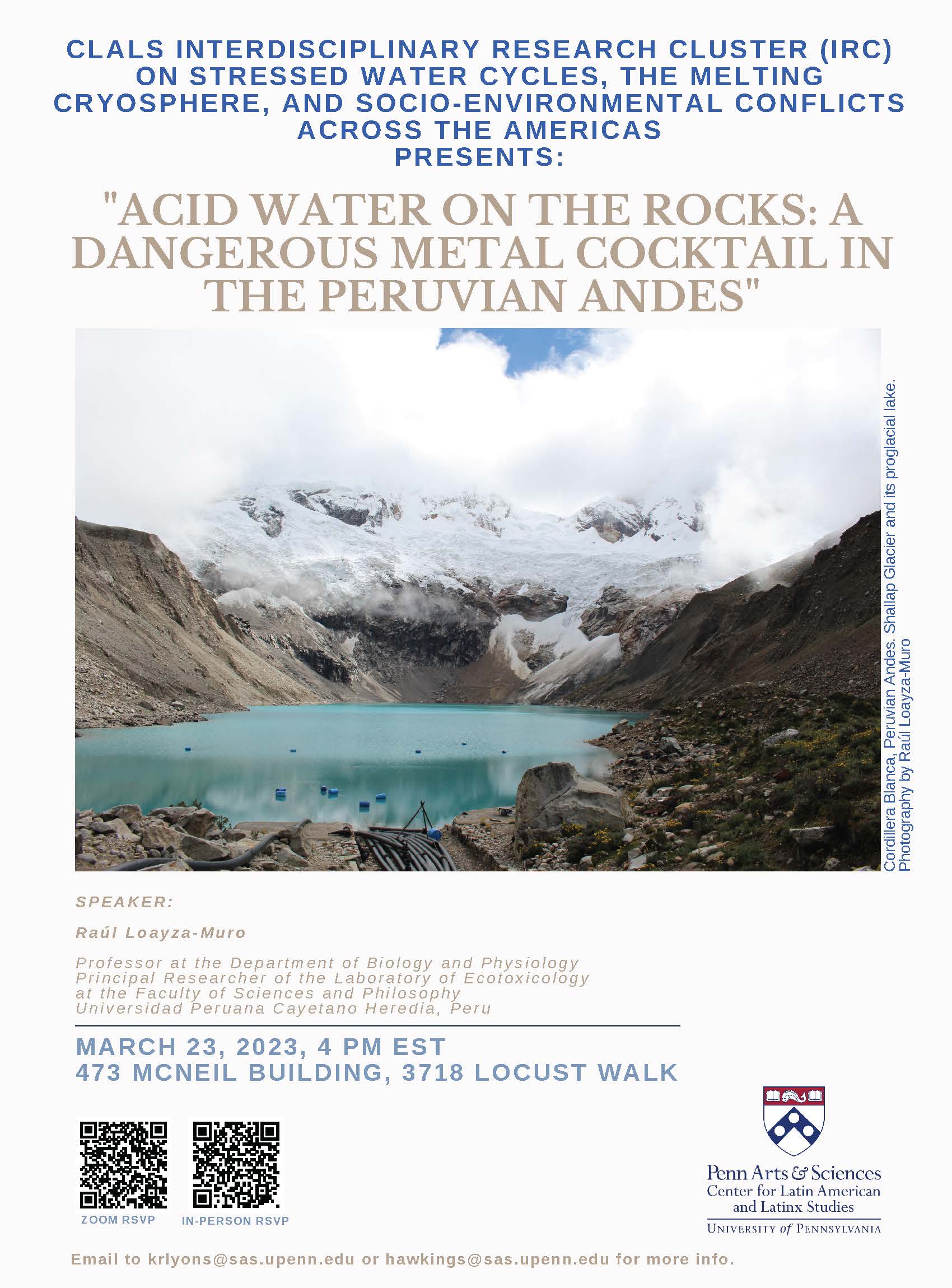IRC: "Acid water on the rocks: a dangerous metal cocktail in the Peruvian Andes" with Raul Loayza Muro

Mountain glaciers are sentinels of climate change. The most vulnerable are located in rapidly warming tropical regions, such as the Cordillera Blanca in Peru, where they have undergone high rates of mass loss and retreat in the last decades. Attention to date has focused primarily on the quantity of water released from mountain glaciers; however, the concurrent changes in water quality are much more poorly constrained, despite their paramount importance for agriculture, food security, hydropower and ecosystem functioning. This talk tackles the importance of meltwater-rock interactions as a natural source of acid drainage and toxic metals potentially threatening human health, aquatic life and ecosystems in the Andes; how remote sensing can provide tools to determine key elements driving the vulnerability and future responses of catchments to glacier retreat and acidification; and understanding downstream buffers to develop effective solutions for creating resilience in an unprecedented climate change scenario. This research was supported by the CASCADA Project, led by Prof. Jemma Wadham (University of Bristol, UK) and Prof Raúl Loayza-Muro (Universidad Peruana Cayetano Heredia, Peru), and financed by the Newton-Paulet Fund.
